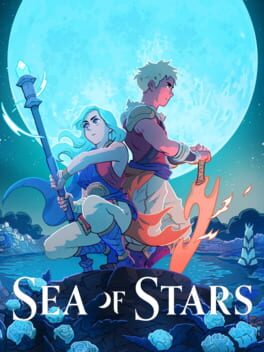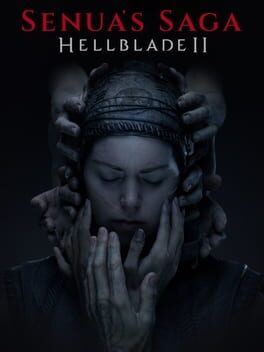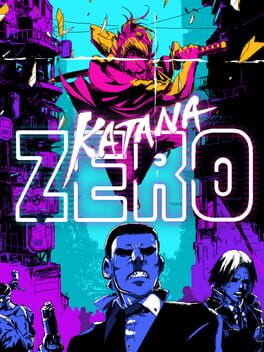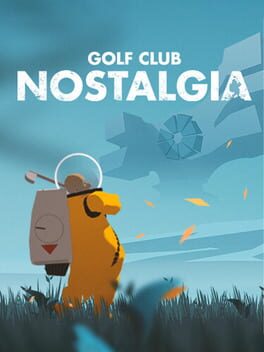SirXmas
Hellblade: Senua's Sacrifice is a triumph of interactive art. Not because the visuals are high fidelity, or because the combat system is satisfying (albeit fairly simple), or even because it tells a compelling, intimate narrative. Hellblade is a game that revolves around the subjects of mental health, trauma, self-doubt, paranoia, grief, and loss, to name a few. I say the "game" instead of "narrative" because Hellblade fully utilizes the interactive capabilities of video games to engage and involve you, the person playing, with these themes in ways very few games do.
I'm not talking about anything as basic as being presented a moral quandary or a dialogue decision to make like you might expect from most games. Every puzzle mechanic and set piece is built with intent to reflect aspects of Senua's mental health struggles with psychosis and apophenia. Play the game with headphones (as you should) and the voices will fill your head as they do Senua's - you will even come to rely on some of them at times. There is only one instance in the entire game where text is displayed on-screen (not counting required system text like the main menu, subtitles, etc), and without spoiling anything, it serves the game's themes. Hellblade also breaks typical conventions at times to deliver powerful gameplay moments that require the player to stop and consider what exactly the game is trying to convey.
I won't go into any more detail to avoid spoiling things, but for me the way Ninja Theory pulls these moments off while telling Senua's story elevate Hellblade to one of my favorite games of all time. Try it if you want something that you truly experience instead of just "play".
I'm not talking about anything as basic as being presented a moral quandary or a dialogue decision to make like you might expect from most games. Every puzzle mechanic and set piece is built with intent to reflect aspects of Senua's mental health struggles with psychosis and apophenia. Play the game with headphones (as you should) and the voices will fill your head as they do Senua's - you will even come to rely on some of them at times. There is only one instance in the entire game where text is displayed on-screen (not counting required system text like the main menu, subtitles, etc), and without spoiling anything, it serves the game's themes. Hellblade also breaks typical conventions at times to deliver powerful gameplay moments that require the player to stop and consider what exactly the game is trying to convey.
I won't go into any more detail to avoid spoiling things, but for me the way Ninja Theory pulls these moments off while telling Senua's story elevate Hellblade to one of my favorite games of all time. Try it if you want something that you truly experience instead of just "play".
2023
In a league of its own visually. There's really not much more that needs to be said about that.
Narratively Hellblade II takes some much grander swings in its subject matter than the first game. While I feel it can't quite live up to the standard set by its predecessor's methods of directly engaging the player with its intimate and specific themes, it is still compelling, helped along by the incredible motion capture work and performances. Some people complain that the story invalidates the first game but, without spoiling anything, I disagree with that conclusion and recommend a second playthrough with the alternate narration.
The combat is simplified in favor of incredible visual and animatic fidelity such that every fight looks like a choreographed film scene, which is a trade-off that mostly works for me since I can always go back and play the first game if I want that combat system. My only two complaints about the combat are the lack of boss fights and the fact that you only ever face a single enemy at a time, which reduces the tension and can feel a bit goofy in extended encounters.
Ninja Theory had a clear vision for what they wanted with this sequel - to tell a story exploring specific themes, this time with an all-in focus on cinematic presentation - and for the most part I think they accomplished their goals. There is maybe one theme that is brought up right at the very end of the game that I feel was a bit underdeveloped and didn't quite land for me with the impact they likely wanted. Despite that the game is a fantastic accomplishment for Ninja Theory and well worth experiencing.
Narratively Hellblade II takes some much grander swings in its subject matter than the first game. While I feel it can't quite live up to the standard set by its predecessor's methods of directly engaging the player with its intimate and specific themes, it is still compelling, helped along by the incredible motion capture work and performances. Some people complain that the story invalidates the first game but, without spoiling anything, I disagree with that conclusion and recommend a second playthrough with the alternate narration.
The combat is simplified in favor of incredible visual and animatic fidelity such that every fight looks like a choreographed film scene, which is a trade-off that mostly works for me since I can always go back and play the first game if I want that combat system. My only two complaints about the combat are the lack of boss fights and the fact that you only ever face a single enemy at a time, which reduces the tension and can feel a bit goofy in extended encounters.
Ninja Theory had a clear vision for what they wanted with this sequel - to tell a story exploring specific themes, this time with an all-in focus on cinematic presentation - and for the most part I think they accomplished their goals. There is maybe one theme that is brought up right at the very end of the game that I feel was a bit underdeveloped and didn't quite land for me with the impact they likely wanted. Despite that the game is a fantastic accomplishment for Ninja Theory and well worth experiencing.
2023
The puzzles are too straightforward to be engaging and the world is too abstract to infer any interesting meaning, so when you start having to constantly swap through the orbs to rearrange things I couldn't take the tedium. The puzzles were not the main hook for me for Limbo or Inside and the same applied here, so the lack of compelling context in the world left me with zero desire to see things all the way through.
2023
-1 star for not naming the company Vandelay Industries. That and the extremely average platforming sections and break-every-crate resource collection felt like filler between the highly engaging combat segments. Everything else, from the animation and sound to the characters to the aforementioned combat, are all incredible.
2019
2022
This review contains spoilers
That one mechanic doesn't really work properly when playing with a keyboard. I didn't realize it until I was far too deep into the game and I didn't feel like going back and rewatching everything.
In addition the "match cut" mechanic quickly starts to feel random - while you can try to strategically pick certain objects, half the time you'll end up at something entirely unrelated. It pretty quickly devolves into just clicking on any and everything in order to find new reels, unlike Her Story where there was actual thought to put into what terms to search for.
In addition the "match cut" mechanic quickly starts to feel random - while you can try to strategically pick certain objects, half the time you'll end up at something entirely unrelated. It pretty quickly devolves into just clicking on any and everything in order to find new reels, unlike Her Story where there was actual thought to put into what terms to search for.
2018
This game is what the youth call a “vibe”. But the golfing itself is not particularly fun, with only one club which feels inconsistent and an overemphasis on precise shots onto tiny platforms. I’d have enjoyed the game much more if the courses were less frustrating so I could just chill out while listening to the in-game radio. Still, the atmosphere was enough to motivate me to see it through.
2022
5 star concept and design dragged down by 2 star combat (a myriad of issues, the biggest being the frustratingly minuscule sword range and stamina, overall stiffness, the item menu not pausing, and of course the small amount of damage you can take). The invulnerability mode was a godsend but negates the need to engage with or the usefulness many of the game’s mechanics and unlocks. Overall the obvious Souls influence felt unnecessary to me and distracted from the core appeal of the game, that feeling of playing something you don’t quite fully understand. Some of the extra puzzles were also fairly repetitive once you figured out the first couple. Despite all these negatives listed, as I mentioned, the main concept of the game is exceptional. The feeling of slowly figuring the game out is engaging, unique, and highly nostalgic for those with certain experiences.
Edit: Apparently there has been another option added to reduce all damage taken by half. That might make the game a more enjoyable level of difficulty, I wish I could have played it with that enabled.
Edit: Apparently there has been another option added to reduce all damage taken by half. That might make the game a more enjoyable level of difficulty, I wish I could have played it with that enabled.








